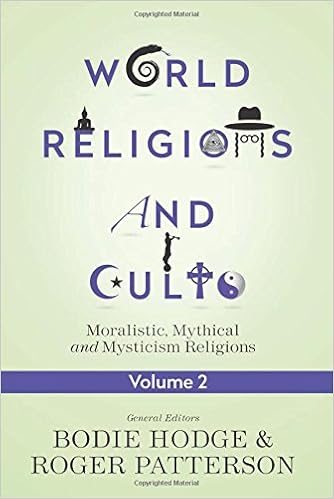Atheism
Definition
Atheism includes any philosophy which claims that no God or gods exist, including any rational or reasoning creator of the universe.
Keywords: Atheism, Philosophy, God, Rational, Veracity, False, Belief, Reason, Contradictory, Argument From Reason.
Veracity
Atheistic claims are false .
Proof
Any view regarding the external world that denies the possibility of rational thought regarding the external world prohibits warrant for the deductive process and is thus deductively false.
Premise 1: If premises begin to exist without reason, then conclusions drawn from them are also without reason.
Premise 2: If there is no god, all initial human premises about the external world begin to exist without reason.
Conclusion: Therefore, if there is no god, all human conclusions about the external world are also without reason.
If there is no god, there is no reason to accept the universality or the invariance of logic or the deductive process, making atheistic claims themselves deductively false.
This Argument from Reason demonstrates that god exists.

Gilbert Guttlebocker, Defender of Dragons
Riveting, yet absurd; romantic, yet innocent; Gilbert Guttlebocker, Defender of Dragons is a little Roald Dahl, a little Harry Potter, and a little Chronicles of Narnia, all rolled into one. Timothy McCabe collaborates with the great Benedict Ballyhoot to bring you the novel of the century!

In Printed Form
Along with numerous other authors including Don Landis, Bodie Hodge and Roger Patterson, Timothy McCabe contributes analyses of various world religions and cults in this volume from Master Books.
Other Writings
"Has God always existed and always will? If so, how did God design the universe if nothing existed to guide him and nothing existed for him to think about."
I don't think I completely understand your question. The question itself seems to presuppose some things that are not accurate, and so I'm not really sure how to answer it. If your basic question is "how did God design the universe?" then I can honestly tell you that I have no idea -- God didn't specifically tell us how He did it and I have never designed a universe myself, so I wouldn't know the first thing about it.
Continue reading...
"If EVERYTHING in the Bible is Gospel truth, then which is true? John Ch.18 V.9 or John Ch.17 V.12?"
I'm afraid I don't understand your question. These two verses say the same thing. In fact, the verse in John 18:9 is a direct reference to the message also contained in John 17:12. Here are the verses: John 17:12 (Christ is speaking to the Father) "While I was with them, I was keeping them in Your name which You have given Me; and I guarded them and not one of them perished but the son of perdition, so that the Scripture would be fulfilled.
Continue reading...
"If God is "just is", then why can't the universe "just be"?"
God has made it clear that this is not the case (Genesis 1:1, 2:4; Isaiah 42:5, 45:8, 45:18; Ephesians 3:9; Colossians 1:16; Revelation 4:11, 10:6), and since He is perfectly knowledgeable (Job 37:16; Psalm 147:5; Isaiah 46:9-10; John 21:17; 1 John 3:20), perfectly honest (Exodus 34:6; 2 Samuel 7:28; Psalm 31:5, 57:10; John 1:14, 1:17, 14:6; Ephesians 4:21; Hebrews 6:18), and perfectly sovereign (1 Chronicles 29:14; Job 41:11; Psalm 119:91, 135:6; Ecclesiastes 11:5; Mark 10:27; John 1:3, 5:44;...
Continue reading...